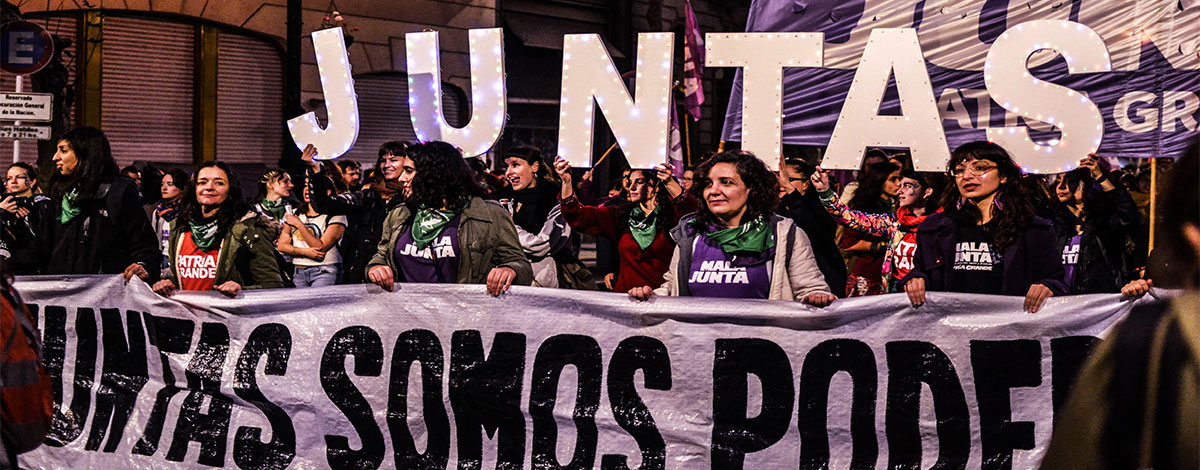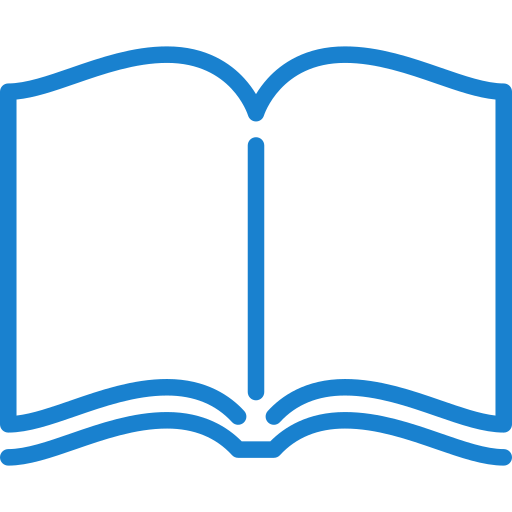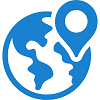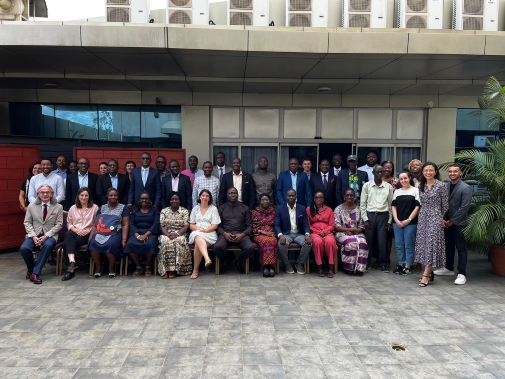EUROsociAL+ (Gender Component)

Objective
-
€8.1mBUDGET
-
01/11/2016PROJECT START
-
60 monthsDURATION
This program aims to strengthen public policies for gender equality in 19 Latin American countries. The objective is to reduce gender inequalities and help strengthen social cohesion in order to achieve the Sustainable Development Goals (SDGs).

EUROsociAL+ (2016-2021) is the third phase of EUROsociAL and follows on from this European programme which has been aiming to strengthen social cohesion in Latin America since 2005. It contributes to reducing inequalities, at both national and continental level, by assisting countries with their reforms to promote public policies for physical, economic and political empowerment and mainstreaming.
Funded by the European Union, the EUROsociAL+ programme is implemented by a consortium led by FIIAPP (Spain), also in charge of the Democratic Governance Policies component of the programme. Expertise France is responsible for the implementation of the Gender Equality component, while the International Italo-Latin American Organisation (IILA) is responsible for the Social Policies component. The Secretariat of Central American Social Integration (SISCA), based in Panama, is also part of the consortium.
Four lines of action: empowerment and gender mainstreaming in public policies
As the objective is to reduce gender inequalities in Latin America, the gender component of the EUROsociAL+ programme is based on 4 lines of action for the three areas of empowerment (physical; economic, paid work and the care economy; and political) and gender mainstreaming in public policies.
1. Physical empowerment
For this area concerning personal empowerment, the actions are based on fighting violence against women, sexual and reproductive health, as well as new models of masculinity.
|
In Mexico, EUROsociAL+ has carried out an evaluation of the functioning of the gender violence alert mechanism (AVGM). AVGM is a national federal procedure to protect women’s rights, set up by the Mexican Ministry of the Interior and National Institute for Women. The aim is to react to violence with a high risk of femicide in each federal State, while coordinating actors at the various administrative levels through a set of emergency government measures. Civil society organisations use this mechanism to alert the federal authorities in the event of extreme gender violence. AVGM allows a diagnostic to be carried out of the situation of violence with the risk of femicide by an expert committee in a given area and proposes a series of corrective measures to the authorities. The support from EUROsociAL+ aimed to strengthen the monitoring of these measures. |
 For more information, download the "Physical autonomy" leaflet
For more information, download the "Physical autonomy" leaflet
2. Economic empowerment
This line of action identifies the initiatives that aim to promote equality between women and men at work and improve working conditions for women, via access to paid work on equal terms, but also care policies to provide social care for children, people with disabilities and the elderly, in order to alleviate the everyday tasks of women.
|
|
 For more information, download the "Economic autonomy" leaflet
For more information, download the "Economic autonomy" leaflet
3. Political empowerment
This area includes actions based on the capacity of women to participate, on an equal footing with men, at all levels and in all aspects of political, economic, social and cultural life and in particular concerning decision-making.
|
|
 For more information, download the "Political autonomy" leaflet
For more information, download the "Political autonomy" leaflet
4. Mainstreaming the gender perspective
This line includes all the actions concerning gender mainstreaming in the various stages of the development of public policies.
This comprises national plans for equality, as well as the production of gender statistics (broken down by sex and explaining gaps), which seek to produce and use data to identify socioeconomic, cultural and political gender inequalities determined by socially constructed gender relations. The next aspect is gender responsive budgeting, an application of the integration of the gender dimension into the budgetary and fiscal process, with the aim of promoting gender equality.
 Institutions request a number of actions, in particular support for national equality policies in Peru and Costa Rica. The expert mission has not only led to an updating of the development of national plans and the creation of monitoring-evaluation indicators, but also to the analysis of their sectoral application. The objective is to analyse the inequalities detected in order to understand the cultural models and institutional practices that reproduce them, and to be able to implement measures to move towards equality. Institutions request a number of actions, in particular support for national equality policies in Peru and Costa Rica. The expert mission has not only led to an updating of the development of national plans and the creation of monitoring-evaluation indicators, but also to the analysis of their sectoral application. The objective is to analyse the inequalities detected in order to understand the cultural models and institutional practices that reproduce them, and to be able to implement measures to move towards equality. |
 For more information, download the "Mainstreaming the gender perspective" leaflet
For more information, download the "Mainstreaming the gender perspective" leaflet
EUROsociAL's method
The programme mobilises and establishes links between both European and Latin American good practices. Each action is custom-built, from the formulation to the implementation of gender equality policies, in order to contribute to improving social cohesion in Latin America.
The EUROsociAL+ programme operates in a specific way, as it responds to the demand of Latin-American institutions, which is both a challenge and a strength for action in Latin America. Requests can come from the executive, legislative or judicial powers. The participation of civil society is often encouraged in the implementation of projects.
EUROsociAL+ in the globa agenda
The Generation Equality Forum 2021
From Mexico to Paris, the EUROsociAL+ programme took part in the Generation Equality Forum, a global event for gender equality. The opening of the Forum in March 2021 brought together high-level European and Latin American authorities for a round table discussion focusing on gender and social cohesion .The Forum continued with meetings to exchange good practices, identify the challenges and express concrete recommendations on key topics: care for victims of violence, prevention of early pregnancies, digital transformation, recovery plans and gender perspective, women and climate.
Thus, EUROsociAL+ has contributed to amplify the call for international mobilisation launched in Paris from 30 June to 2 July 2021 and to enrich the global agenda on gender equality.
« Two continents united for equality » - March 2022
As France holds the Presidency of the Council of the European Union, Expertise France, within the framework of the EUROsociAL+ programme, along with the French Ministry in charge of equality between women and men and the European Commission, brought together 12 ministers from Europe and 13 ministers from Latin America to strengthen the dialogue and exchange of good practices on women's economic autonomy.
 More about EUROsociAL+: eurosocial.eu
More about EUROsociAL+: eurosocial.eu
 Follow EUROsociAL+ on Twitter: @EUROsociAL_
Follow EUROsociAL+ on Twitter: @EUROsociAL_




